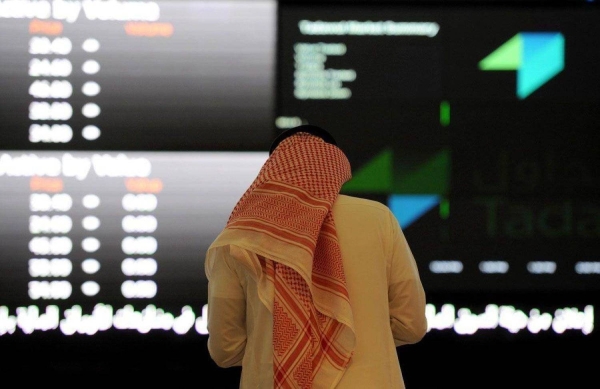The Saudi Stock Exchange’s main index, Tadawul All Share Index (TASI), saw a decline of 52.23 points (0.43 percent) at the end of Wednesday’s session, reaching 12,128.14 points. The energy sector was particularly affected, falling by about one percent. The volume of traded shares reached 446 million, with over 590,000 transactions. Of the companies listed, 46 recorded an increase in their value, while 180 saw a decrease. Saudi Aramco, the heaviest weight in the index, saw a decrease of 0.90 percent, trading at SR27.65 with about 13 million shares exchanged. Other companies such as Aldrees and Arabian Drilling also saw declines in their shares.
One company that experienced a significant decline was Jazadco, which operates in the agricultural, industrial, and real estate sectors. Its share fell by over 2 percent to SR13.84 after the announcement of the permanent closure of its first production line for bottling drinking water. On the other hand, Al Rajhi Bank saw a rise of 0.56 percent, trading at SR89, after announcing the acquisition of 65 percent of the Darham application. Asmak was one of the most profitable companies, with its share jumping by 10 percent to SR24.38. Al Baha followed with a 7.7 percent increase at SR0.14 after the company announced the recommendation of the Board of Directors to reverse the nominal value of the share to one riyal and reduce the capital.
In addition to TASI, the Saudi Parallel Stock Index (Nomu) also saw a decline of 98.75 points, closing at 25946.20 points. The trades on Nomu were worth SR32 million, with a volume of over two million shares divided into 3600 transactions. This indicates a broader trend of decline in the Saudi stock market on Wednesday. The overall liquidity for the session was reported at SR7.45 billion ($2 billion), highlighting the significant financial activity in the market despite the decline in the index.
Investors in the Saudi stock market may be closely monitoring these developments and adjusting their portfolios accordingly in response to the fluctuations in the market. The energy sector’s decline, in particular, may have implications for investors with holdings in that sector. The specific announcements made by companies such as Jazadco and Al Rajhi Bank could also impact investor sentiment and future trading patterns. As companies continue to make strategic decisions and disclose performance results, the market may see further fluctuations in the coming sessions.
It is essential for investors to stay informed about market developments and company-specific news to make well-informed decisions about their investments. By closely following the trends and patterns in the Saudi stock market, investors can take advantage of potential opportunities and mitigate risks associated with market volatility. As the market continues to react to various economic, political, and industry-related factors, being proactive and informed is crucial for successful investment strategies in the Saudi stock exchange.











